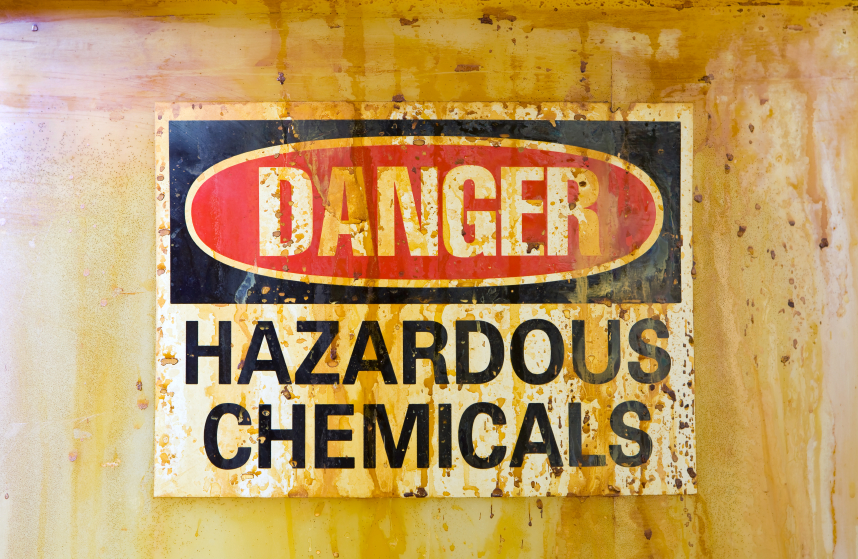 Parler
Parler Gab
Gab
- Finasteride’s hidden psychiatric dangers: Once promoted as a safe fix for hair loss, finasteride (Propecia) has been linked for over two decades to depression, anxiety, and suicide — yet regulatory agencies and its manufacturer, Merck, failed to act despite mounting evidence.
- Ignored warnings and delayed action: Reports of depression surfaced as early as 2002, but the FDA didn’t acknowledge it until 2011, and didn’t add suicidal ideation to the drug label until 2022. The European Medicines Agency only recognized the suicide risk in 2025 — a 20-year delay that may have cost countless lives.
- Widespread harm and underreporting: Professor Mayer Brezis estimates that hundreds of thousands of men suffered finasteride-related depression and thousands may have died by suicide, yet only a fraction of cases were reported, as doctors and families often failed to link a cosmetic hair loss drug to severe psychiatric symptoms.
- Natural, safer alternatives exist: Nutritional support (biotin, zinc, omega-3s), natural DHT blockers like saw palmetto, topical treatments such as rosemary and pumpkin seed oil, and addressing root causes (thyroid imbalance, stress, inflammation) offer effective, non-toxic solutions for hair loss without risking mental health.
Finasteride and the Hidden Epidemic of Depression: How a Hair Loss Drug Became a Global Mental Health Crisis
A new analysis published in The Journal of Clinical Psychiatry by Prof. Mayer Brezis of Hebrew University exposes how warnings about finasteride’s psychiatric side effects — depression, anxiety, and suicidality — have been ignored for over two decades. The paper is dedicated to a young man who began taking finasteride “just to improve his hair,” developed severe neuropsychiatric symptoms within a week, and died by suicide months later. Two Decades of Ignored Warnings Concerns about finasteride-induced depression surfaced as early as 2002, when a clinical report documented 19 cases of depressive symptoms during treatment. All patients recovered after stopping the drug; two who restarted it relapsed immediately. Despite this clear pattern, no regulatory action followed. Between 2017 and 2023, eight independent studies — analyzing millions of adverse event reports and medical records from multiple countries — consistently found that finasteride use correlates with a significantly increased risk of depression, anxiety, and suicidal behavior. Yet the U.S. Food and Drug Administration (FDA) waited until 2011 to acknowledge depression as a possible side effect and did not include suicidal ideation on the label until 2022. The European Medicines Agency (EMA) only added suicide risk warnings in 2025 — twenty-three years after the first reports. The Magnitude of Harm Professor Brezis estimates that over the past 20 years, hundreds of thousands of men worldwide have experienced finasteride-related depression, and hundreds to thousands may have died by suicide. By 2011, only 18 suicides had been reported to the FDA — a number shockingly low compared to the roughly 4.6 million people taking the drug at that time. Based on statistical expectations, between 6,000 and 12,000 suicides should have been observed. By 2024, 320 suicides were officially recorded, when approximately 19,000 would have been expected. The discrepancy underscores the difficulty of tracing psychiatric deaths to a cosmetic drug. Families and clinicians often fail to link a sudden depressive crisis to a hair loss treatment, and completed suicides are rarely followed by toxicological or pharmacovigilance investigation. Meanwhile, Merck — the drug’s manufacturer — repeatedly argued that “no causal link has been established.” How Finasteride Disrupts the Brain Finasteride blocks the enzyme 5-alpha-reductase, preventing testosterone from converting into dihydrotestosterone (DHT), the hormone responsible for shrinking hair follicles. However, this enzyme also helps produce neurosteroids like allopregnanolone, which regulate mood and calm the nervous system. When neurosteroids are depleted, anxiety, depression, and insomnia can develop. Animal studies show finasteride induces long-term changes in brain chemistry, including hippocampal damage, neuroinflammation, and altered gene expression. Many men experience “post-finasteride syndrome” — a constellation of persistent symptoms such as cognitive fog, panic attacks, sexual dysfunction, and suicidal thoughts that continue long after stopping the drug. Corporate and Regulatory Failures Despite access to vast safety databases, Merck never conducted or published any of the safety studies later performed by independent researchers. Internal FDA documents reveal that agency scientists recommended adding “suicidal thoughts and behavior” to the label as early as 2010, but the proposal was dismissed without explanation. Key sections of the FDA’s safety review remain redacted as “confidential.” Brezis’s paper frames the finasteride story as a textbook case of corporate silence and regulatory inertia — a 20-year failure that allowed preventable psychiatric harm to proliferate worldwide. Natural and Safe Alternatives for Hair Health Male pattern baldness stems from multiple factors: DHT sensitivity, inflammation, poor circulation, and nutritional deficiencies. Unlike finasteride, these issues can often be addressed safely through natural interventions. Biotin, zinc, and iron support healthy hair growth, while omega-3 fatty acids and saw palmetto reduce inflammation and DHT without crossing the blood-brain barrier. Topical rosemary oil and pumpkin seed oil have been clinically shown to stimulate hair regrowth. Microneedling by trained professionals can enhance scalp blood flow and promote follicle repair. Addressing thyroid dysfunction, insulin resistance, and chronic stress also helps restore hair health naturally. The Bottom Line Finasteride, prescribed to millions for a cosmetic condition, has been conclusively linked to depression, anxiety, and suicide — yet warnings were delayed for two decades. The tragedy reveals deep flaws in how regulators monitor drug safety and how pharmaceutical companies prioritize profit over patient welfare. Men seeking to address hair loss should know they have safer, natural options that support hormonal balance, circulation, and detoxification without risking their mental health. As the Journal of Clinical Psychiatry paper concludes, the finasteride crisis underscores a vital lesson: when a drug’s benefits are cosmetic but the potential harms are life-threatening, the burden of proof must fall on those who profit from its sale. Tune your internet dial to NaturalMedicine.news for more tips on how to use natural remedies for preventative medicine and for healing, instead of succumbing to Big Pharma products that cause, spread, and exacerbate disease and disorder. Sources for this article include: NaturalNews.com NaturalHealth365.com Psychiatrist.com ScienceDaily.comVitamin D2 supplements may deplete more beneficial D3 levels, study finds
By Cassie B. // Share
Scientists challenge materialist dogma, explore PANPSYCHISM, or CONSCIOUSNESS as fundamental reality
By Lance D Johnson // Share
Manhunt underway after migrant who assaulted child is accidentally released from U.K. prison
By Belle Carter // Share
U.S. slaps SANCTIONS on Colombian President Gustavo Petro
By Ramon Tomey // Share
Governments continue to obscure COVID-19 vaccine data amid rising concerns over excess deaths
By patricklewis // Share
Tech giant Microsoft backs EXTINCTION with its support of carbon capture programs
By ramontomeydw // Share
Germany to resume arms exports to Israel despite repeated ceasefire violations
By isabelle // Share










